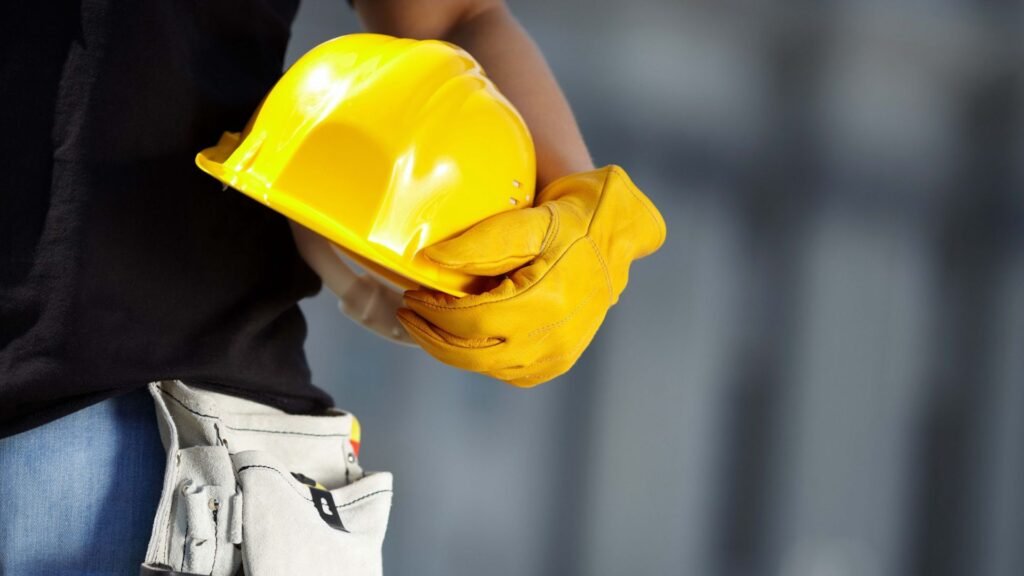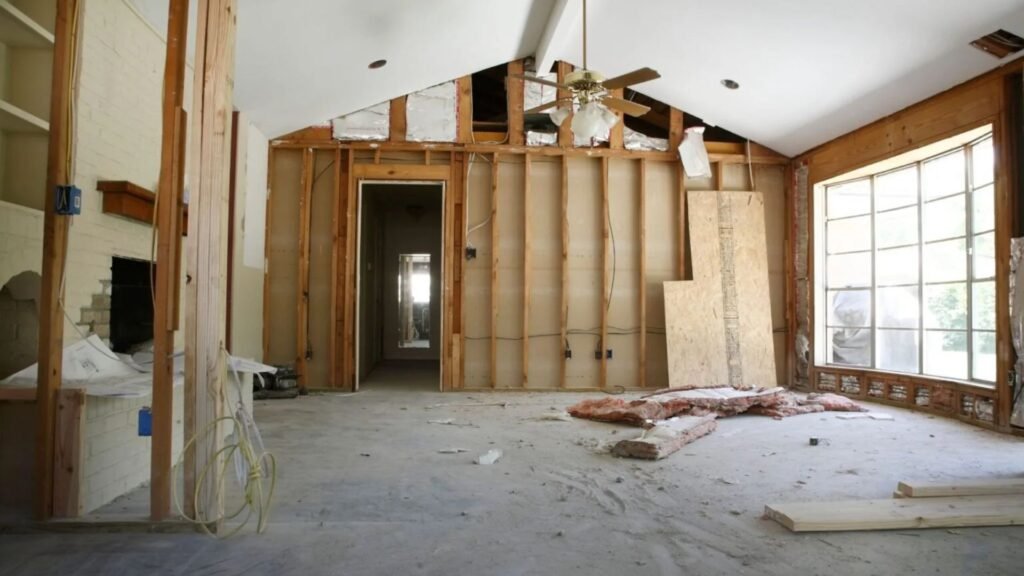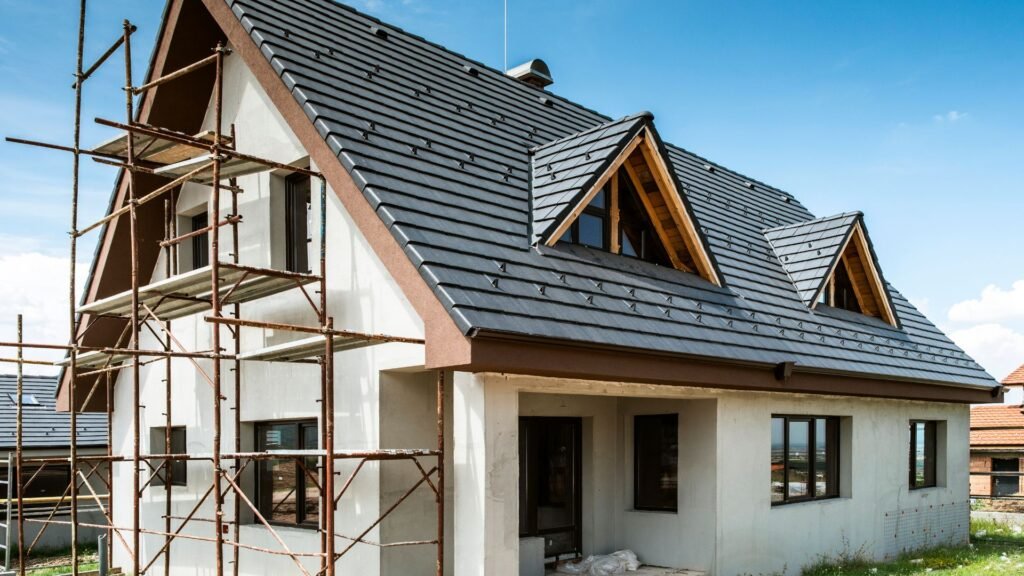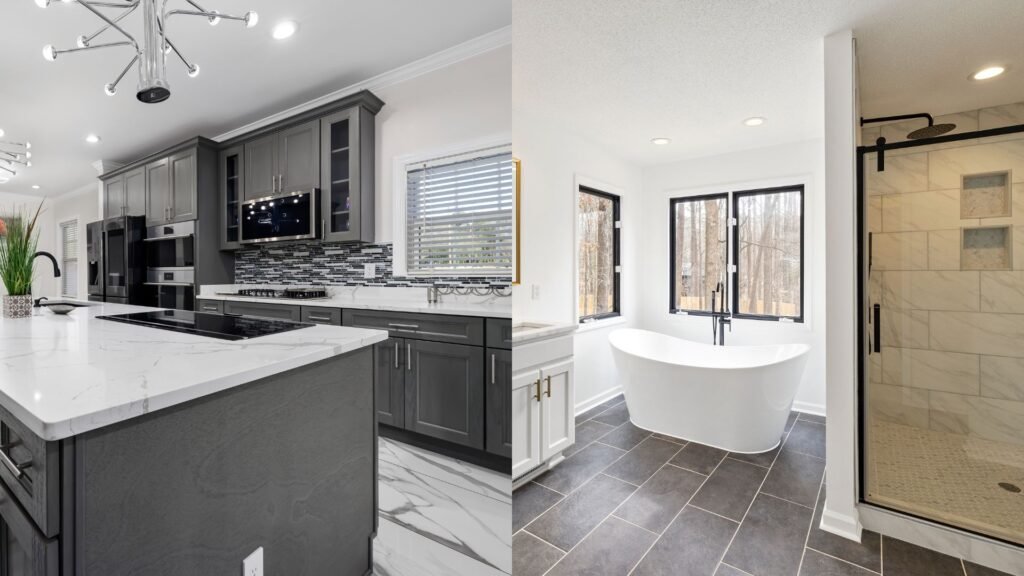Welcome to your guide on how to check a builder’s credentials in NZ before starting any construction or renovation project. Choosing the right builder is one of the most important decisions you’ll make, and it starts with verifying they’re properly qualified, licensed, and trustworthy. Every year, Kiwis face costly delays, poor workmanship, or even legal battles simply because they didn’t confirm who they were hiring. Whether you’re building a new home, doing renovations, or just fixing up a room, this guide will walk you through exactly how to check credentials, spot red flags, and protect yourself before you sign a contract or hand over a deposit.
To check a builder’s credentials in NZ, search the Licensed Building Practitioners (LBP) register, confirm trade association memberships like Master Builders or Certified Builders, and ask for proof of license, insurance, and recent work. Always verify before signing any contract or paying a deposit.
Table of Contents
What Are Builder Credentials In NZ?
When you’re planning to build, renovate, or extend a home in New Zealand, one of the most important steps is making sure your builder has the right credentials. This isn’t just about paperwork, it’s about making sure the person you hire is qualified, reliable, and legally allowed to carry out the work you’re paying for. In New Zealand, “builder credentials” refer to official recognitions, licenses, and memberships that prove a builder meets certain professional standards.
What “Credentials” Mean In The NZ Building Context
In simple terms, credentials are proof that a builder has the skills, knowledge, and authority to do the work safely and correctly. These can include government-issued licenses, membership in professional building associations, and records of training or experience. For many types of residential building work, especially anything that affects the structure of a home, having the right credentials isn’t optional. It’s a legal requirement under New Zealand’s Building Act.
Credentials also give you confidence as a homeowner. They show that a builder understands New Zealand’s building codes, knows how to get the right consents, and is up to date with best practices in the industry.
Types Of Credentials: Licensed Building Practitioners (LBP), Registered Master Builders, Certified Builders
There are three main types of builder credentials in New Zealand that you should look for:
Licensed Building Practitioners (LBP)
This is the most critical credential. The LBP scheme is run by the Ministry of Business, Innovation and Employment (MBIE). Builders who carry out restricted building work, like framing, roofing, or foundations, must be licensed. You can check the LBP register online to confirm if a builder is licensed, see their license class, and check for any disciplinary history.
Registered Master Builders
This is a membership-based association that sets high standards for builders. Being a Registered Master Builder means a builder has gone through a screening process that includes checks on their workmanship, financial stability, and references. Builders in this group can also offer the Master Build Guarantee, which protects you if things go wrong during the build.
Certified Builders
Certified Builders are members of the New Zealand Certified Builders Association. To become a member, a builder must hold a trade qualification. Like Master Builders, Certified Builders offer their own protection scheme (Halo) and are required to meet ongoing standards.
While LBP is a legal requirement for restricted work, membership in Registered Master Builders or Certified Builders is voluntary. That said, it shows a builder’s commitment to professionalism, quality, and continued learning.
Who Regulates Builders In NZ
In New Zealand, the regulation of builders is primarily handled by MBIE through the Licensed Building Practitioners scheme. MBIE sets the rules around who needs a license, how builders can qualify, and what happens if a builder doesn’t meet the standards. The Building Practitioners Board also has the authority to investigate complaints, hold hearings, and issue penalties where necessary.
Trade associations like Registered Master Builders and Certified Builders help set industry standards, but they don’t have the legal power of MBIE. Still, they provide valuable support, training, and dispute resolution services for both builders and clients.
By checking these credentials and understanding who stands behind them, you’re protecting your investment, reducing risk, and making sure your project is in good hands. You don’t need to be an expert in building law, just knowing what to look for can save you from major headaches later.
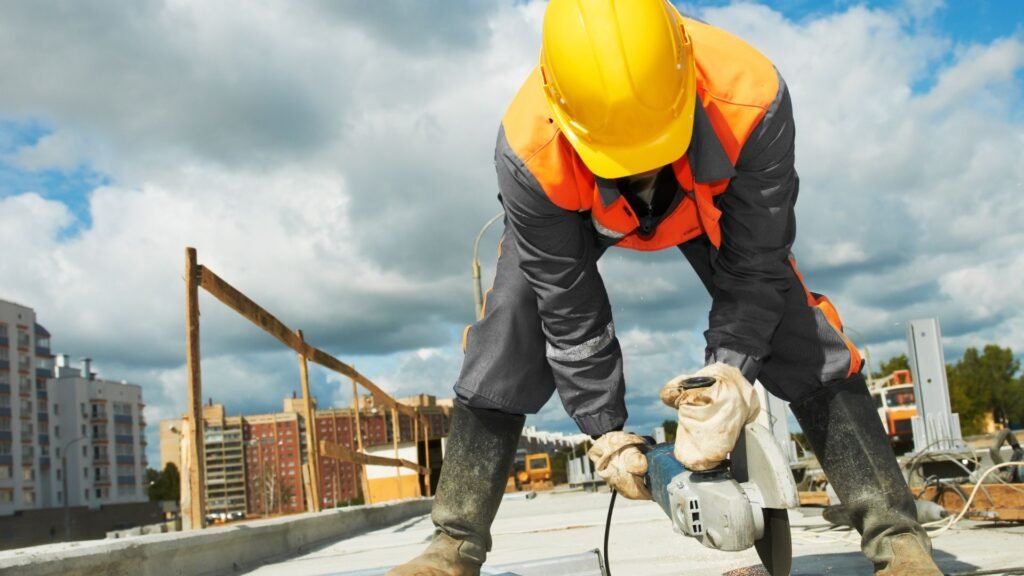
Why You Should Never Skip Credential Checks
Hiring a builder without checking their credentials might feel like a shortcut, but it often leads to expensive, stressful problems down the line. Whether you’re building a new home, renovating a kitchen, or adding an extension, the person you hire must be qualified, licensed, and accountable. Here’s why skipping this step is a serious mistake.
Risks Of Hiring An Unqualified Builder
When a builder doesn’t have the right qualifications or license, you’re putting your money, time, and home at risk. Unqualified builders may:
- Use substandard materials
- Cut corners to save time or money
- Fail to follow New Zealand Building Code requirements
- Disappear mid-project without finishing the job
You might end up with leaks, structural issues, or electrical hazards that require expensive repairs. Even worse, if the work is unsafe, the council may issue a notice to fix, or you may have to redo everything.
Impact On Consented Building Work Or Insurance Claims
In New Zealand, certain construction jobs require building consent and must be carried out or supervised by a Licensed Building Practitioner (LBP). This includes work on foundations, framing, roofing, and waterproofing.
If you use an unlicensed builder for this kind of work:
- Your consent application may be rejected or delayed
- The final code of compliance certificate (CCC) could be withheld
- Your home insurance may not cover future damage linked to non-compliant work
Even if the job looks finished, it’s not legally complete until the right paperwork is in place. Without proper credentials, your builder can’t sign off restricted building work, and that affects your resale value, insurability, and peace of mind.
How Cowboy Builders Operate And Trick People
Cowboy builders are the ones who operate under the radar. They usually:
- Offer cheap quotes with vague details
- Ask for large cash deposits upfront
- Avoid contracts or formal agreements
- Use borrowed credentials or claim they’re “waiting for paperwork”
They often seem friendly at first. But once work begins, they can disappear, ignore your calls, or leave you with unfinished or dangerous construction.
Some even reuse photos from other builders or fake testimonials to appear more legitimate online. If you don’t verify their license and references, you’re an easy target.
Doing your homework might take a few minutes, but it protects your project, your wallet, and your future. Builders with nothing to hide will always welcome a credential check, it shows you’re a smart client who values quality work. Never rush this step. A little caution upfront saves you from a big mess later.
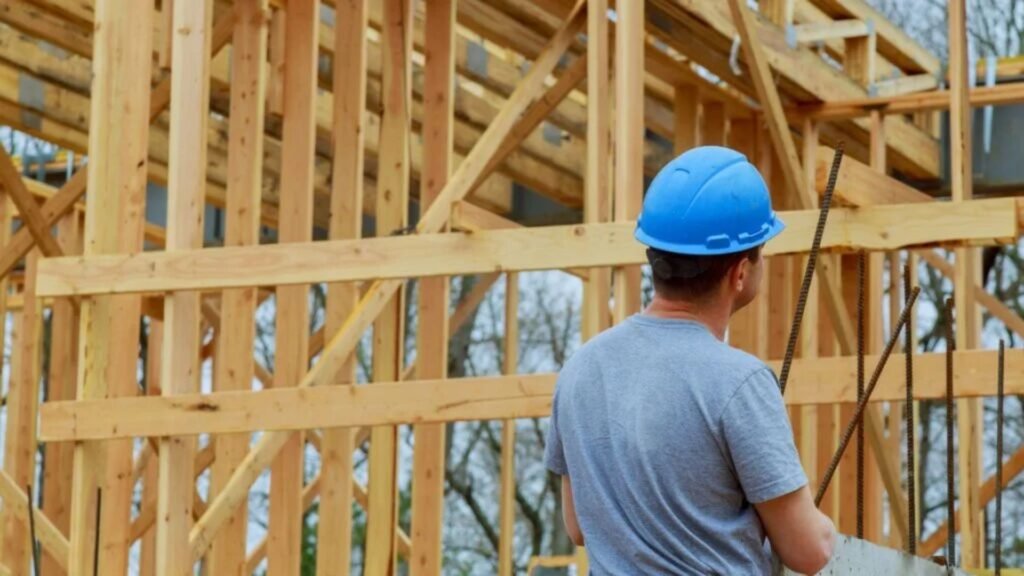
How To Check A Builder’s License In NZ
Before you sign any contract or hand over a deposit, it’s critical to confirm whether your builder is legally allowed to carry out building work. In New Zealand, this means checking if the builder is a Licensed Building Practitioner (LBP). The LBP scheme is managed by the Ministry of Business, Innovation and Employment (MBIE), and it ensures that only qualified professionals carry out or supervise restricted building work (RBW), like structural repairs or new homes. Here’s how to verify your builder’s license the right way.
Step-By-Step: Using The LBP Public Register
The easiest and most reliable way to check a builder’s license is by using the LBP Public Register online. It’s a free tool, open to anyone, and it only takes a minute.
Follow these steps:
1. Go to LBP website
2. Click on “Search The Public Register”
3. Enter the builder’s name, company name, or license number
4. Review the results and click on the builder’s profile to view more details
Make sure the name you enter is spelled correctly. If the builder is licensed, their profile should appear with full details. If you can’t find them at all, ask the builder to confirm their license number or spelling.
What To Look For: License Status, License Class, Suspensions
Once you’ve found their profile, you need to dig a little deeper than just checking that their name appears.
Here’s what to focus on:
License Status
Check that it says “Current.” If the license is “Suspended,” “Expired,” or “Cancelled,” they should not be doing restricted work.
License Class
Builders are licensed for different types of work, like Carpentry, Roofing, Site supervision, etc. Make sure their license class matches the work you’re hiring them for.
Date Of Licensing
This shows how long they’ve been licensed. A longer history can suggest experience, but always confirm with references.
Suspensions Or Disciplinary History
If there are notes about suspensions or disciplinary actions, it’s a red flag. Ask the builder to explain, and proceed with caution.
Region Or Location
Confirm the builder is based in or near your area. This helps confirm you’re looking at the right person, especially if the name is common.
Common Red Flags
Even if someone claims to be licensed, there are a few warning signs that something isn’t right.
Watch out for these red flags:
- Builder refuses to give their full name or license number
A licensed builder should proudly show their credentials.
- No results on the public register
If they don’t appear at all, double-check the spelling. If still nothing, walk away.
- License is expired or suspended
Even a short suspension matters. Ask why. If it sounds vague or suspicious, don’t risk it.
- License class doesn’t match the job
A license in Roofing doesn’t mean they’re qualified to build your home’s foundation.
- Builder says, “Don’t worry, I’ve done this before” but shows no proof
Experience matters, but it must be backed by legal qualifications for certain work.
Verifying a builder’s license in NZ isn’t just a box to tick, it’s one of the smartest steps you can take to avoid stress, wasted money, and dangerous mistakes. Always take a few minutes to check credentials before you trust someone with your home. It’s free, fast, and puts you in control.
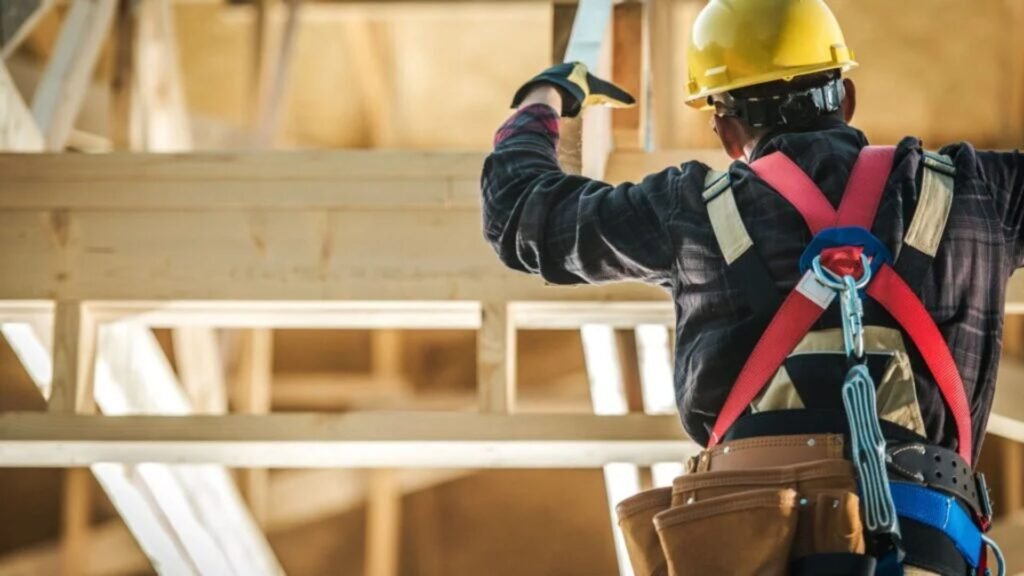
How To Verify Membership In A Trade Association
Hiring a builder is a big decision. Beyond checking their license, you should also look into whether they belong to a trade association. Membership in a respected builder association adds another layer of trust and credibility. But what exactly does it mean, and how do you check it? Here’s a simple, clear breakdown.
Difference Between LBP And Builder Associations
In New Zealand, being a Licensed Building Practitioner (LBP) is a legal requirement for anyone carrying out or supervising restricted building work. This includes structural work, foundations, roofing, and weathertightness elements. The LBP system is run by the New Zealand government through the Ministry of Business, Innovation and Employment (MBIE).
A builder association, on the other hand, is a private membership-based organization. Builders join these groups to access professional support, training, and to show their commitment to industry standards. The two main associations in NZ are:
- Registered Master Builders Association
- Certified Builders Association of New Zealand
Membership in these associations is voluntary and not required by law, unlike the LBP license.
How To Check If They’re A Registered Master Builder
To find out if your builder is a Registered Master Builder, follow these steps:
1. Go to the official website: Master Builder NZ
2. Click on Find a Builder in the main menu.
3. Enter the builder’s name, company name, or location.
4. Review the search results to confirm membership.
If their name doesn’t appear, they’re not part of the association. You can always contact the association directly to double-check. Being a Registered Master Builder means they can offer a Master Build Guarantee, which covers major defects for up to 10 years depending on the project.
Certified Builders NZ: What It Means
Certified Builders New Zealand (CBNZ) is another trusted industry group. Only qualified builders (those with a trade qualification) can join. This ensures all members have been formally trained.
To verify if your builder is a Certified Builder:
1. Visit the website of Certified Builder NZ
2. Use the Find a Builder tool.
3. Enter the name or company details.
4. Confirm their membership status.
Certified Builders members can offer Halo 10-Year Residential Guarantee Insurance, which protects you in case of faulty work, bankruptcy, or non-completion.
What Association Membership Tells You (And What It Doesn’t)
What It Tells You
- The builder is committed to professional standards.
- They likely follow ethical practices and ongoing training.
- They have access to dispute resolution through the association.
- They can offer warranties or guarantees through the organization.
What It Doesn’t Tell You
- It doesn’t replace a government-issued LBP license.
- It doesn’t guarantee high-quality work on its own.
- It doesn’t mean they’re the right fit for your specific job.
Always combine membership verification with other checks, like reviewing past work, asking for references, and confirming their license.
Verifying trade association membership isn’t just a checkbox. It gives you peace of mind, better protection, and shows that the builder takes their profession seriously. Always take a few minutes to confirm it, it can save you from bigger headaches later.
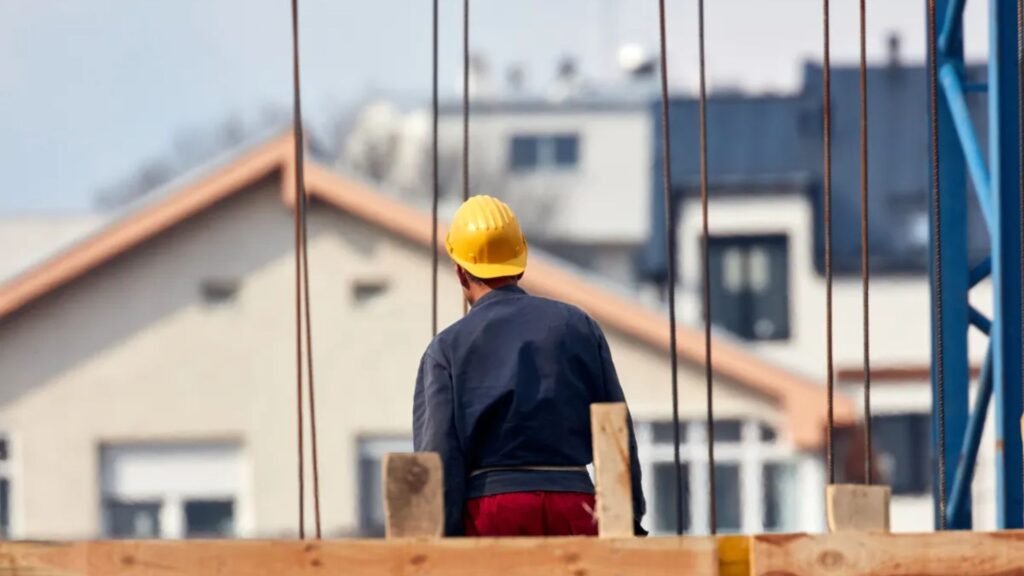
Ask These Questions Before Signing Anything
Before you commit to hiring any builder, ask the right questions. It’s not about being pushy, it’s about protecting your home, your money, and your peace of mind. Even if the builder seems trustworthy, a quick conversation can reveal whether they’re truly qualified and transparent. Below are the five key questions to ask and what to listen for in their answers.
Are You Licensed For This Type Of Work?
Start here. In New Zealand, anyone carrying out or supervising restricted building work (RBW) must be a Licensed Building Practitioner (LBP). If the builder hesitates, gives vague answers, or says “you don’t need that,” it’s a red flag.
Ask for their LBP number and look it up on the LBP. This will confirm their license status, any disciplinary actions, and the type of work they’re licensed for, like carpentry, roofing, or foundations. Don’t just take their word for it.
Can I See Your Recent Jobs And References?
A reputable builder will be happy to show you recent projects and share contact details for past clients. When reviewing their work:
- Ask if the jobs were completed on time and within budget.
- Look for consistency in quality.
- Talk to at least two or three past clients if you can.
This helps you understand not just their technical skills but how they communicate, handle problems, and treat clients during the build.
Do You Offer A Written Contract And Warranty?
Verbal promises mean nothing in construction. Always ask for a detailed written contract that covers:
- Scope of work
- Timeline and deadlines
- Payment structure
- Dispute resolution process
- Any warranties or guarantees offered
Builders working under the Consumer Guarantees Act and Building Act must also provide certain warranties. A professional builder won’t hesitate to put things in writing. If they avoid contracts or rush you to sign something vague, walk away.
Who Actually Does The Work, Employees Or Subcontractors?
Some builders manage the job but outsource most of the work to subcontractors. That’s not automatically bad, but you need to know who’s on-site.
Ask:
- Who will be working on my property every day?
- Are they all licensed or supervised properly?
- How long have you worked with these subcontractors?
You want consistency, accountability, and proper supervision, especially for restricted work.
What Insurance Do You Carry?
No matter how skilled the builder is, things can go wrong. That’s why insurance is critical. Ask if they have:
- Public liability insurance (protects you if property gets damaged)
- Contract works insurance (covers materials and the building site)
- Professional indemnity insurance (especially for design-and-build projects)
Also ask if they’re part of a warranty program like Master Build Guarantee or Certified Builders Halo Guarantee, which adds an extra layer of protection if the builder disappears or goes bust mid-project.
Asking these five questions takes just a few minutes but can save you thousands. You don’t need to be an expert, you just need to ask smart, direct questions and pay attention to the answers. Builders who respect your time and your home will welcome the chance to show their credentials.
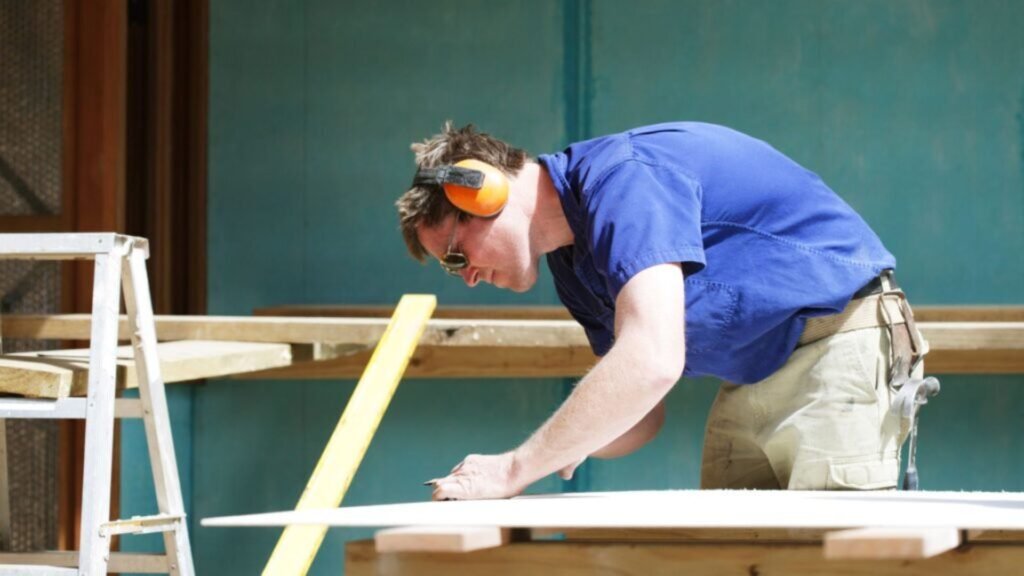
Tools And Websites That Make It Easy
If you’re planning to hire a builder in New Zealand, you don’t need to guess whether they’re legit. Several official websites and tools are available that make it easy to check a builder’s credentials, business status, and professional affiliations. These resources help you avoid risky hires and feel confident about your choice.
Below are the most trusted and straightforward places to verify a builder’s background and qualifications in NZ:
Licensed Building Practitioners Register
This is the official government-run database of Licensed Building Practitioners (LBPs). If a builder says they’re licensed, this is where you confirm it.
Here’s how to use it:
- Go to Licensed Building Practitioners Register website
- Enter the builder’s name or license number
- Check their license status (active, suspended, expired)
- Review the license class (e.g., carpentry, site supervision)
- Look for any disciplinary history
This register is especially important when your project includes restricted building work. Hiring someone who’s not licensed could lead to serious compliance issues with your local council and delays in getting consent or inspections approved.
Master Builders NZ
Master Builders is one of the most recognized trade associations in New Zealand. Builders who belong to this group have passed background checks and agree to follow a strict code of conduct.
To verify membership:
- Visit Master Builders NZ website
- Use the “Find A Master Builder” search tool
- Enter your builder’s name or company
Why this matters:
- Only members can offer the Master Build 10-Year Guarantee
- It shows a builder is committed to high standards and quality work
- It provides an extra layer of accountability if issues arise
While not a legal requirement, Master Builders membership is a strong trust signal.
Certified Builders NZ
Certified Builders is another respected industry body in NZ. To join, a builder must be trade-qualified and vetted by the organization.
- To verify a Certified Builder:
- Go to Certified Builder NZ website
- Use the “Find A Builder” tool
- Search by name or location
Key benefits:
- Certified Builders members must hold formal qualifications
- They often offer insurance-backed guarantees
- Members follow a code of ethics and professional standards
Using a Certified Builder adds credibility to your project and gives you peace of mind.
Companies Office And NZBN Search
Not all checks are about trade qualifications, some are about business legitimacy.
To verify if a builder is operating a registered business:
- Go to the Companies Office website
- Search for the company name
- Confirm the company status (active, removed, under liquidation)
You can also search the New Zealand Business Number (NZBN):
- See who owns the business
- Check the physical address
- Confirm that GST registration and business structure details match what the builder tells you
These checks help protect you from scams or fly-by-night builders who disappear mid-project.
Why These Tools Matter
Using these tools takes only a few minutes, but they can save you thousands of dollars and months of stress. Whether you’re doing a minor reno or building a new home, verifying credentials is a smart step. You’ll know your builder is qualified, honest, and operating legally, and that gives you one less thing to worry about.
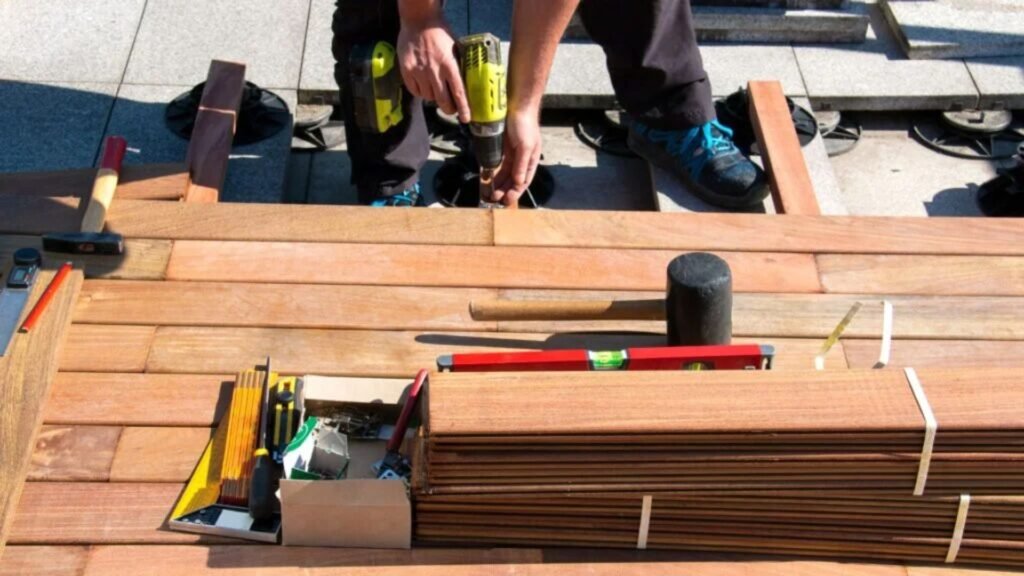
Warning Signs To Watch Out For
Hiring the wrong builder can cost you time, money, and peace of mind. While credentials and licenses are important, how a builder communicates and behaves during early discussions is just as telling. If something feels off, it probably is. Below are key warning signs you should never ignore when dealing with a builder in New Zealand.
Pushy Sales Tactics Or Demanding Large Upfront Payments
If a builder pressures you to make a quick decision, sign a contract on the spot, or pay a large deposit before any work begins, that’s a major red flag. Reputable builders will give you time to think things over, get quotes from others, and read the contract fully. Large upfront payments, especially before any materials are purchased or permits are approved, could mean the builder is either in financial trouble or planning to disappear. Stick to progress payments linked to completed stages of the project, and always have payment terms in writing.
Vague Contracts Or Verbal-Only Agreements
A professional builder should always provide a clear, detailed written contract. If they avoid paperwork, say “we’ll sort it later,” or rely only on handshakes and verbal promises, walk away. A vague contract leaves you with no protection if something goes wrong. It should include project timelines, scope of work, payment schedule, warranty terms, and who’s responsible for permits and inspections. If any part of the contract feels unclear, ask questions until everything makes sense, never settle for “trust me.”
Unwilling To Provide Proof Of License Or Insurance
Any legitimate builder in New Zealand should be able to show you their Licensed Building Practitioner (LBP) number and a valid insurance certificate without hesitation. If they dodge the question, delay sending documents, or claim it’s not necessary, that’s a serious issue. Licensing ensures they’re qualified for the type of work they’re doing, especially restricted building work. Insurance protects both you and the builder if damage or accidents occur. No credentials? No deal.
Online Reviews Seem Fake Or Don’t Match Reality
Online reviews are useful, but only when they’re real. Be cautious if a builder has only five-star reviews that sound generic, lack detail, or repeat similar phrases. Look for consistent patterns in customer feedback, both good and bad. If you find multiple negative reviews or unresolved complaints, ask the builder to explain them. Better yet, ask for recent references you can call directly. A builder with nothing to hide will gladly connect you with past clients.
Trust your instincts. If the builder seems evasive, aggressive, or too good to be true, there’s probably a better option out there. Checking credentials is just the start, paying attention to how they act can save you from bigger problems down the line.
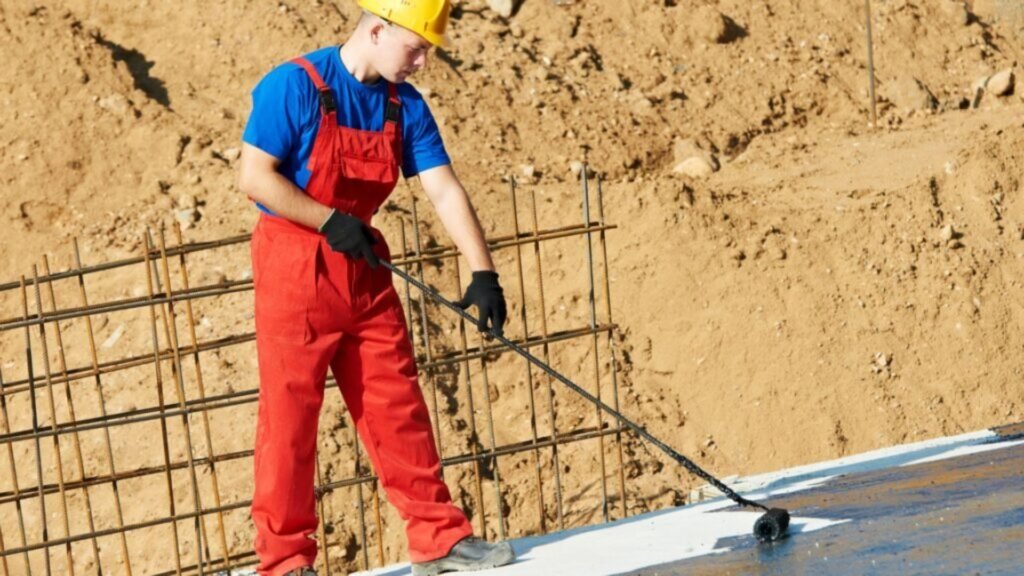
What To Do If You’ve Hired A Builder With No Credentials
Hiring a builder without checking their credentials can lead to serious headaches. If you’ve already signed a contract or started a project and just found out your builder isn’t licensed or qualified, don’t panic, but don’t ignore it either. Acting quickly can help you protect your home, your money, and your legal rights. Here’s a clear breakdown of what you should do next.
Pause The Work Immediately
The first thing you need to do is stop the construction work. Don’t let them continue until you’ve sorted things out. Every day they continue working increases the risk of:
- Unsafe construction
- Poor workmanship
- Legal issues if the work doesn’t meet building code
Pausing the work gives you time to figure out your next steps before more damage is done or costs pile up.
Document Everything
Take photos of the current progress, materials used, and any visible problems. Keep a digital and printed copy of:
- Contracts or agreements
- Invoices and payment receipts
- Email or text conversations
- Photos of site work or builder tools
This evidence will help if you need to make a legal claim, file a complaint, or recover money.
Contact Your Local Council, MBIE, Or A Construction Disputes Lawyer
Local councils and MBIE (Ministry of Business, Innovation and Employment) can provide guidance, especially if restricted building work is involved. You might also need legal advice if.
- You’ve paid a large deposit
- The builder caused structural damage
- You’re being threatened with extra charges
A construction disputes lawyer can help you understand your rights and guide you through next steps, such as issuing a formal stop notice or seeking compensation.
Report Them If Necessary
If the builder lied about their credentials or misrepresented their experience, you can report them to:
- MBIE or the LBP Board (if they claimed to be licensed)
- The police (if fraud is involved)
- Consumer Protection NZ
- The relevant trade association (if they used fake logos or claims)
Reporting unlicensed or dishonest builders helps protect other homeowners and may prevent them from repeating the same actions.
Taking action quickly and documenting your case is the best way to protect yourself. While it’s frustrating, the right steps now can prevent the situation from getting worse, and may help you recover some of your losses.
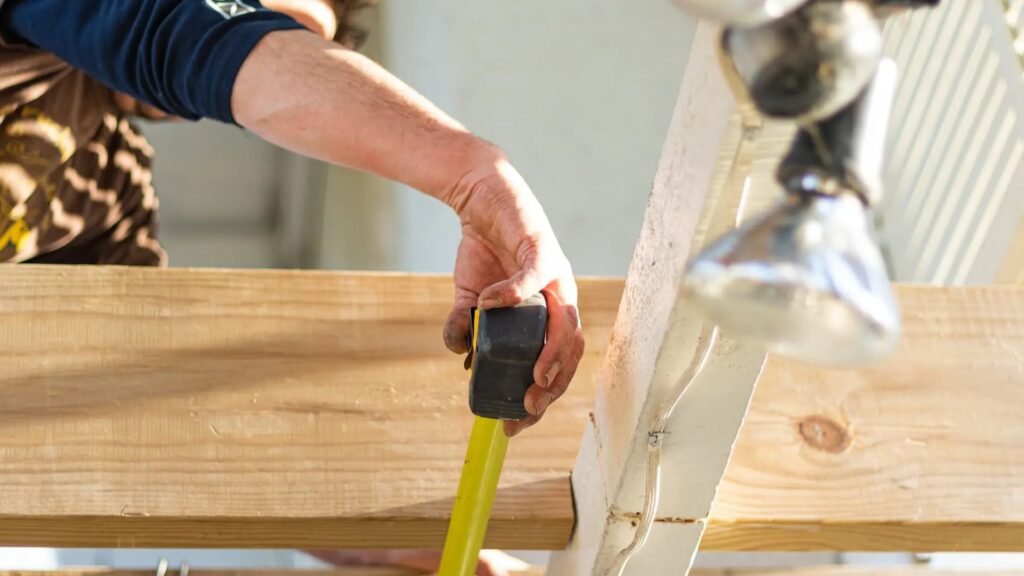
How To Protect Yourself Before The Build Starts
Before you let a single tool hit the ground, take steps to protect yourself and your investment. Hiring a builder isn’t just about getting the right person for the job, it’s about setting clear expectations and making sure you’re covered if something goes wrong. Here’s how to do that properly in New Zealand.
Use A Detailed Contract
Always get a written contract before any work begins. A solid contract outlines everything: the scope of work, materials, deadlines, costs, and responsibilities. This becomes your reference point if problems arise later.
Make sure the contract includes:
- A full breakdown of costs
- A timeline with clear start and end dates
- Penalties for delays or incomplete work
- A clause for resolving disputes
Don’t sign anything you don’t fully understand. If the contract seems vague or rushed, ask questions or seek legal advice. A professional builder won’t hesitate to explain the terms.
Agree On Payment Terms Linked To Milestones
Avoid paying everything upfront. Instead, agree on a payment schedule tied to project milestones. This protects your money and motivates the builder to stick to the timeline.
For example, divide the total cost into stages like:
- Deposit before starting
- Frame completion
- Roofing done
- Final inspection
Each payment should only be made when that specific part of the work is completed to your satisfaction. Always get receipts and written confirmation of each payment.
Get Everything In Writing, Including Changes
Plans can change during a build. That’s normal. But verbal agreements often lead to misunderstandings. Any change to the original plan, whether it’s switching materials, extending the timeline, or adding a new task, should be documented.
Use variation forms or addendums to update your contract. Make sure both you and the builder sign off on them. This keeps everything transparent and helps avoid disputes down the road.
Use A Building Warranty Scheme If Available
A building warranty scheme gives you extra protection if something goes wrong with the work or the builder disappears. Many reputable builders are part of third-party schemes like the Master Build Guarantee or Certified Builders Halo Guarantee.
These warranties can cover:
- Structural defects
- Poor workmanship
- Builder insolvency
- Cost of completing the job if the builder quits
Ask the builder if they offer a warranty, what it covers, and how long it lasts. Read the fine print and make sure the warranty is in place before the project starts.
Ready to hire a trusted builder in NZ? Before you commit to any construction project, make sure you’re working with a builder who meets all licensing and quality standards. At Builders Matakana, we believe every homeowner deserves peace of mind and honest workmanship. Whether you’re planning a renovation or starting from scratch, our team connects you with licensed, experienced professionals across New Zealand.
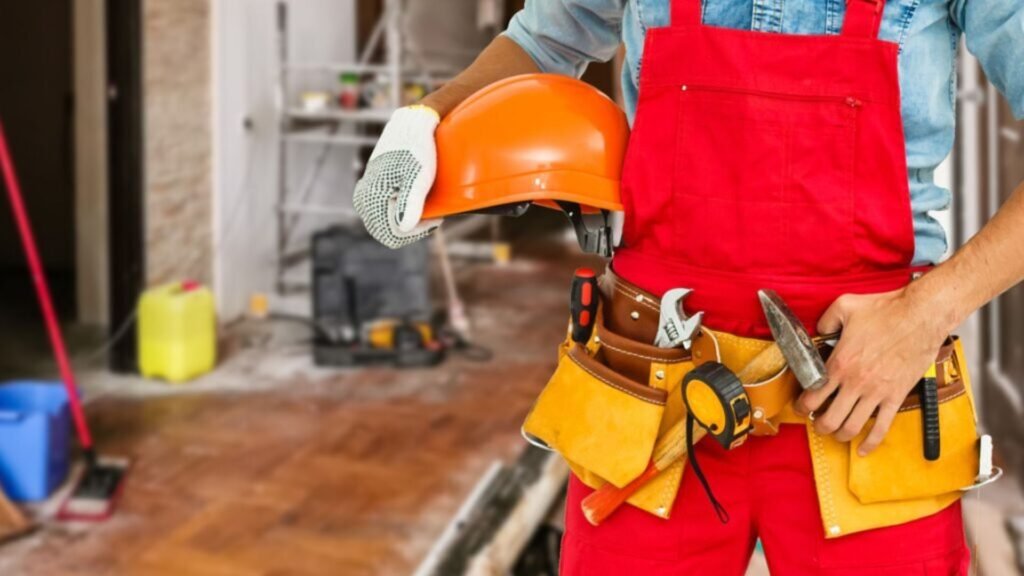
FAQs: About How To Check A Builder’s Credentials In NZ
Why is it important to check a builder’s credentials in NZ?
Checking credentials helps ensure your builder is qualified, licensed, and legally allowed to perform building work. It reduces the risk of poor workmanship, legal disputes, or project delays.
What is the Licensed Building Practitioners (LBP) Register?
The LBP Register is a public database managed by the Ministry of Business, Innovation and Employment (MBIE). It lists qualified builders licensed to carry out or supervise restricted building work in New Zealand.
How do I check if a builder is licensed in NZ?
Visit the LBP and enter the builder’s name or license number. You’ll see their license status, license class, and whether any disciplinary actions exist.
Are all builders in NZ required to be licensed?
No. Only those doing or supervising restricted building work (RBW) on residential properties must be licensed. However, using a licensed builder is strongly recommended for any structural or major work.
What’s the difference between LBP and Master Builders?
LBP is a government-issued license, while Master Builders is a trade association. Membership in Master Builders shows a commitment to professional standards but is not a legal requirement.
What should I ask a builder before hiring them?
Ask if they’re licensed, request proof of recent jobs and references, ask about insurance coverage, and insist on a written contract with clear terms.
Can I trust online reviews when choosing a builder?
Online reviews can be helpful, but they shouldn’t replace license and credential checks. Some reviews may be fake or unverified, so always cross-check with official records.
What are the signs of an untrustworthy builder?
Warning signs include pressure to pay upfront, vague or no contracts, unwillingness to show proof of credentials, and poor communication.
What can I do if I’ve already hired an unlicensed builder?
Stop work immediately, document all communications and work done, and contact your local council or MBIE. Legal advice may be necessary if the project involves safety or financial risk.
Is a written contract necessary if I trust the builder?
Yes. A written contract protects both parties by clearly outlining scope, timeline, payment terms, and responsibilities. Verbal agreements can lead to serious misunderstandings.
Conclusion
Doing a quick credentials check before hiring a builder in New Zealand can save you from major headaches, financial losses, and legal problems down the road. It’s a simple step that gives you peace of mind and ensures your project is in the hands of someone qualified and trustworthy. Don’t feel awkward asking for proof of license, memberships, or references, this is your right as the person investing time and money into the build. A professional builder will expect these questions and be happy to answer them. Rushing into a decision or choosing someone based on price alone can lead to poor workmanship or unfinished jobs. Take your time, do the research, and trust your gut. If something feels off, it probably is. Choosing the right builder isn’t just about skills, it’s about finding someone reliable, transparent, and committed to delivering quality work.

